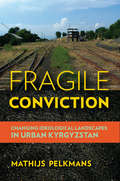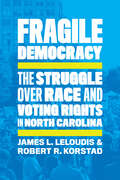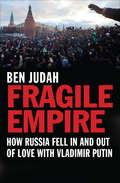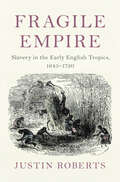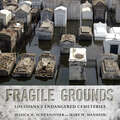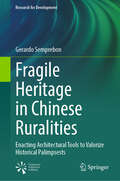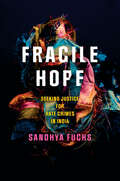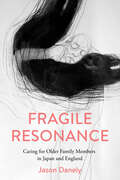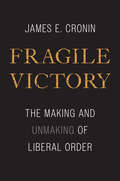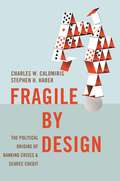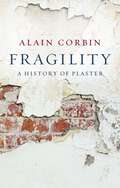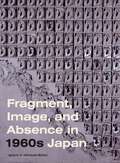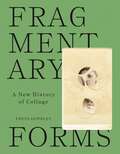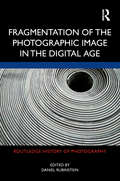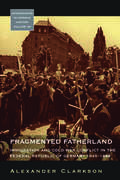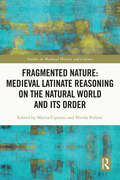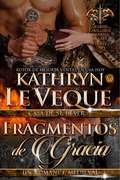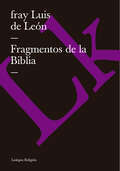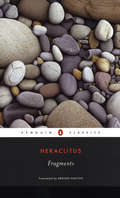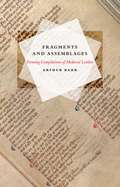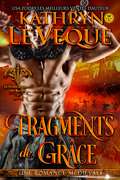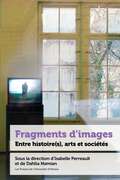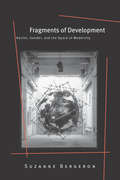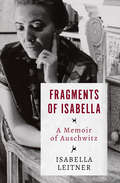- Table View
- List View
Fragile Conviction: Changing Ideological Landscapes in Urban Kyrgyzstan
by Mathijs PelkmansHow do specific secular and religious ideologies—such as nationalism, neoliberalism, atheism, Pentecostalism, Tablighi Islam, and shamanism—gain popularity and when do they lose traction? To answer these questions, Mathijs Pelkmans critically examines the trajectories of a range of ideologies as they move into the post-Soviet frontier in Central Asia. Ethnographically rooted in the everyday life of a former mining town in southern Kyrgyzstan, Fragile Conviction shows how residents have dealt with the existential and epistemic crises that arose after the collapse of the Soviet Empire. Residents became enchanted by the truths of Muslim and Christian missionaries, embraced the teachings of neoliberal and nationalist ideologues, and were riveted by the visions of shamanic healers. But no matter how much enthusiasm and hope these ideas first engendered, the commitment to any of them rarely lasted very long.Pelkmans finds that there is an inverse relationship between the tenacity and the effervescence of collective ideas, between their strength to persist and their ability to trigger committed action. Introducing the concept of pulsation, he argues in Fragile Conviction that ideational power must be understood in relation to three aspects: the voicing of the idea, its tension with everyday reality, and its reverberation within groups of listeners. The conclusion that the power of conviction is rooted in the instability of sociocultural contexts is a message that has relevance far beyond urban Central Asia.
Fragile Democracy: The Struggle over Race and Voting Rights in North Carolina
by Robert R. Korstad James L. LeloudisAmerica is at war with itself over the right to vote, or, more precisely, over the question of who gets to exercise that right and under what circumstances. Conservatives speak in ominous tones of voter fraud so widespread that it threatens public trust in elected government. Progressives counter that fraud is rare and that calls for reforms such as voter ID are part of a campaign to shrink the electorate and exclude some citizens from the political life of the nation.North Carolina is a battleground for this debate, and its history can help us understand why--a century and a half after ratification of the Fifteenth Amendment--we remain a nation divided over the right to vote. In Fragile Democracy, James L. Leloudis and Robert R. Korstad tell the story of race and voting rights, from the end of the Civil War until the present day. They show that battles over the franchise have played out through cycles of emancipatory politics and conservative retrenchment. When race has been used as an instrument of exclusion from political life, the result has been a society in which vast numbers of Americans are denied the elements of meaningful freedom: a good job, a good education, good health, and a good home. That history points to the need for a bold new vision of what democracy looks like.
Fragile Empire: How Russia Fell In and Out of Love with Vladimir Putin
by Ben Judah&“A beautifully written and very lively study of Russia that argues that the political order created by Vladimir Putin is stagnating&” (Financial Times). From Kaliningrad on the Baltic to the Russian Far East, journalist Ben Judah has traveled throughout Russia and the former Soviet republics, conducting extensive interviews with President Vladimir Putin&’s friends, foes, and colleagues, government officials, business tycoons, mobsters, and ordinary Russian citizens. Fragile Empire is the fruit of Judah&’s thorough research: A probing assessment of Putin&’s rise to power and what it has meant for Russia and her people. Despite a propaganda program intent on maintaining the cliché of stability, Putin&’s regime was suddenly confronted in December 2011 by a highly public protest movement that told a different side of the story. Judah argues that Putinism has brought economic growth to Russia but also weaker institutions, and this contradiction leads to instability. The author explores both Putin&’s successes and his failed promises, taking into account the impact of a new middle class and a new generation, the Internet, social activism, and globalization on the president&’s impending leadership crisis. Can Russia avoid the crisis of Putinism? Judah offers original and up-to-the-minute answers. &“[A] dynamic account of the rise (and fall-in-progress) of Russian President Vladimir Putin.&” —Publishers Weekly &“[Judah] shuttles to and fro across Russia&’s vast terrain, finding criminals, liars, fascists and crooked politicians, as well as the occasional saintly figure.&” —The Economist &“His lively account of his remote adventures forms the most enjoyable part of Fragile Empire, and puts me in mind of Chekhov&’s famous 1890 journey to Sakhalin Island.&” —The Guardian
Fragile Empire: Slavery in the Early English Tropics, 1645–1720 (Slaveries since Emancipation)
by Justin RobertsFragile Empire reinterprets the rise of slavery in the early English tropics through an innovative geographic framework. It examines slavery at English sites in tropical zones across the Atlantic and Indian oceans, and argues that a variety of factors – epidemiology, slave majorities, European rivalries, and the power of indigenous polities – made the seventeenth-century English tropical empire particularly fragile, creating a model of empire in the tropics that was distinct from other English colonizations. English people across the tropics were outnumbered by their slaves. English slavery was forged in the tropics and it was increasingly marked by its permanence, inflexibility, and brutality. Early English societies were not the inevitable precursor to British imperial dominance, instead they were wrought with internal vulnerabilities and external threats from European and non-European competitors. Based on thorough archival research, Justin Roberts' important new study redefines our understanding of slavery and bound labor from a global perspective.
Fragile Grounds: Louisiana's Endangered Cemeteries (America's Third Coast Series)
by Mary H. Manhein Jessica H. SchexnayderRecipient of a 2018 Preserve Louisiana Award and a 2018 Coastal Stewardship AwardFragile Grounds compiles stories and photographs of endangered cemeteries throughout Louisiana's coastal zone and beyond. These burial places link the fragile land to the frailty of the state's threatened community structures. The book highlights the state's vibrant diversity by showing its unique burial customs and traditions, while it also identifies the urgent need for ongoing documentation of cultural elements at risk.Cemeteries associated with the culturally rich communities of Louisiana reflect the history and global settlement patterns of the state. Yet many are endangered due to recurring natural and man-made events. Nearly 80 percent of the nation's coastal land loss occurs in Louisiana. Coastal erosion, sinking land, flooding, storm surge, and sea-level rise have led to an inland migration that threatens to unravel the fabric of Louisiana and, by association, hastens the demise of its burial places.As people are forced inland, migrants abandon, neglect, or often overlook cemeteries as part of the cultural landscape. In terms of erosion, when the land goes, the cemetery goes with it. Cemeteries fall prey to inland and coastal flooding. As cities grow outward, urban sprawl takes over the landscape. Cemeteries lose out to forces such as expansion, eminent domain, and urban neglect. Not only do cemeteries give comfort for the living, but they also serve as a vital link to the past. Once lost, that past cannot be recovered.
Fragile Heritage in Chinese Ruralities: Enacting Architectural Tools to Valorize Historical Palimpsests (Research for Development)
by Gerardo SemprebonThis book explores the concept of fragile heritage as an architectural legacy and a territorial resource in rural China, emphasizing the significance in safeguarding its unique cultural trajectory, and laying the groundwork for future developments. Chinese rural buildings and settlements encapsulate priceless cultural values, but become increasingly vulnerable, under increasing pressures. Socioeconomic transitions, climate change, political agendas, land rent speculation, awakenings, and commodifications of cultural values, redefine the conceptual and operational framework of countryside transformation, and contribute to the debate on contemporary architectural and urban design. In this context, rural authenticity emerges as a crucial value in architectural morpho-typology, construction techniques, and expressive codes. The book introduces the notion of fragile heritage as the crossroad between folklore, academia, and practice. Next, it put in place reading methods to frame rural settlements as cultural palimpsests, indissolubly tying architectures to the landscape. These concepts are then applied to a multiscalar analysis of fifteen traditional architectures to uncover rural space and society's physical and cultural dimensions. Finally, it discusses recent revitalization projects, highlighting the potential role of architectural design. The research methodology relies on fieldwork campaigns in the Fujian and Zhejiang Provinces of China between 2017 and 2019 and a subsequent critical ri-elaboration that leverages the graphic apparatus as the fundamental investigative tool. The central idea put forward in this book is that, between tradition and innovation, the fragile heritage of past societies needs a cultural translation, interpretation, and negotiation to find space and life in the contemporary milieu.
Fragile Hope: Seeking Justice for Hate Crimes in India (South Asia in Motion)
by Sandhya FuchsAgainst the backdrop of the global Black Lives Matter movement, debates around the social impact of hate crime legislation have come to the political fore. In 2019, the UN Commission on Crime Prevention and Criminal Justice urgently asked how legal systems can counter bias and discrimination. In India, a nation with vast socio-cultural diversity, and a complex colonial past, questions about the relationship between law and histories of oppression have become particularly pressing. Recently, India has seen a rise in violence against Dalits (ex-untouchables) and other minorities. Consequently, an emerging "Dalit Lives Matter" movement has campaigned for the effective implementation of India's only hate crime law: the 1989 Scheduled Castes/Scheduled Tribes Prevention of Atrocities Act (PoA). Drawing on long-term fieldwork with Dalit survivors of caste atrocities, human rights NGOs, police, and judiciary, Sandhya Fuchs unveils how Dalit communities in the state of Rajasthan interpret and mobilize the PoA. Fuchs shows that the PoA has emerged as a project of legal meliorism: the idea that persistent and creative legal labor can gradually improve the oppressive conditions that characterize Dalit lives. Moving beyond statistics and judicial arguments, Fuchs uses the intimate lens of personal narratives to lay bare how legal processes converge and conflict with political and gendered concerns about justice for caste atrocities, creating new controversies, inequalities, and hopes.
Fragile Resonance: Caring for Older Family Members in Japan and England
by Jason DanelyFragile Resonance describes the paths carers take as they make meaning of their experiences and find a sense of moral purpose to sustain them and guide their decisions. When a parent or partner becomes frail or disabled, often a family member assumes responsibility for their care. But family care is a physically and emotionally exhausting undertaking. Carers experience moments of profound connection as well as pain and grief. Carers ask themselves questions about the meaning of family, their entitlement to support, and their capacity to understand and sympathize with another person's pain. Based on his research gathering stories of family carers in Japan and England, Jason Danely traces how care transforms individual sensibilities and the roles of cultural narratives and imagination in shaping these transformations, which persist even after the care recipient has died. Throughout Fragile Resonance, Danely examines the implications of unpaid carer's experiences for challenging and enhancing social policies and institutions, highlighting innovative alternatives grounded in the practical ethics of care.
Fragile Victory: The Making and Unmaking of Liberal Order
by James E. CroninHow the history of liberal order and democratic politics since the 1930s explains ongoing threats to democracy and international order The liberal democratic order that seemed so stable in North America and Western Europe has become precarious. James E. Cronin argues that liberalism has never been secure and that since the 1930s the international order has had to be crafted, redeployed, and extended in response to both victories and setbacks. Beginning with the German and Japanese efforts in the 1930s to establish a system based on empire, race, economic protectionism, and militant nationalism, Cronin shows how the postwar system, established out of a revulsion at the ideas of fascism, repeatedly reinvented itself in the face of the Cold War, anticolonial insurgencies, the economic and political crises of the 1970s, the collapse of communism, the rise of globalization, and the financial crisis of 2008. Cronin emphasizes the links between internal and external politics in sustaining liberal order internationally and the domestic origins and correlates of present difficulties. Fragile Victory provides the context necessary to understand such diverse challenges as the triumph of Brexit, the election of Trump, the rise of populism, and the Russian invasion of Ukraine.
Fragile by Design: The Political Origins of Banking Crises and Scarce Credit (The Princeton Economic History of the Western World #50)
by Charles W. Calomiris Stephen HaberWhy stable banking systems are so rareWhy are banking systems unstable in so many countries—but not in others? The United States has had twelve systemic banking crises since 1840, while Canada has had none. The banking systems of Mexico and Brazil have not only been crisis prone but have provided miniscule amounts of credit to business enterprises and households.Analyzing the political and banking history of the United Kingdom, the United States, Canada, Mexico, and Brazil through several centuries, Fragile by Design demonstrates that chronic banking crises and scarce credit are not accidents. Calomiris and Haber combine political history and economics to examine how coalitions of politicians, bankers, and other interest groups form, why they endure, and how they generate policies that determine who gets to be a banker, who has access to credit, and who pays for bank bailouts and rescues.Fragile by Design is a revealing exploration of the ways that politics inevitably intrudes into bank regulation.
Fragility: A History of Plaster
by Alain CorbinThe distant past is commonly characterized in terms of dominant materials of the time – the Stone Age, the Bronze Age, the Iron Age, etc. Since the dawn of writing, however, characterizing eras in terms of materials has fallen by the wayside, and yet materials have continued to exert a powerful influence on our collective imagination.Viewed from this perspective, France in the period from 1815 to 1855 could be seen as the half-century of plaster. After the French Revolution, plaster was used for a great variety of things: building, moulding, sculpting, decorating. Cheap and easy to use, plaster was everywhere, from Napoleon’s death mask to household ornaments, from walls to elaborate mouldings. Plaster was king – but a fragile king that easily crumbled and fell apart. The age of plaster was also the reign of the ephemeral and the transient, the vulgar and the eclectic, and the men and women of the time struggled to maintain stability and continuity with the past. In the space of a few decades, no fewer than seven political regimes succeeded one another. Plaster – symbol of the ephemeral, the flaking and the vulgar – is the material which defines the first half of the nineteenth century.Written with his characteristic brilliance and eye for unconventional topics, Alain Corbin’s highly original exploration of the role of plaster in history will be of interest to a wide readership.
Fragment, Image, and Absence in 1960s Japan (Refiguring Modernism)
by Ignacio A. Adriasola MuñozThis groundbreaking book examines how the notion of “the object” was transformed in Japanese experimental art during a time of rapid social, economic, and environmental change.Reviving the legacies of the historical avant-garde, Japanese artists and intellectuals of the 1960s formulated an aesthetics of disaffection through which they sought to address the stalemate of political and aesthetic representation. Ignacio A. Adriasola Muñoz draws from psychoanalytic theories of melancholia to examine the implications of such an approach, tracing a genealogy of disaffection within modernist discourse. By examining the discursive practices of artists working across a wide range of media, and through a close analysis of artwork, philosophical debates, artist theories, and critical accounts, Adriasola Muñoz shows how negativity became an efficacious means of addressing politics as a source for the creative act of undoing.In examining ideas of the object advanced by artists and intellectuals both in writing and as part of their artwork, this book brings discussions in critical art history to bear on the study of art in Japan. It will be of interest to art historians specializing in modernism, the international avant-garde, Japanese art, and the history of photography.
Fragmentary Forms: A New History of Collage
by Freya GowrleyA beautifully illustrated global history of collage from the origins of paper to todayWhile the emergence of collage is frequently placed in the twentieth century when it was a favored medium of modern artists, its earliest beginnings are tied to the invention of paper in China around 200 BCE. Subsequent forms occurred in twelfth-century Japan with illuminated manuscripts that combined calligraphic poetry with torn colored papers. In early modern Europe, collage was used to document and organize herbaria, plant specimens, and other systems of knowledge. In the eighteenth and nineteenth centuries, collage became firmly associated with the expression of intimate relations and familial affections. Fragmentary Forms offers a new, global perspective on one of the world&’s oldest and most enduring means of cultural expression, tracing the rich history of collage from its ancient origins to its uses today as a powerful tool for storytelling and explorations of identity.Presenting an expansive approach to collage and the history of art, Freya Gowrley explores what happens when overlapping fragmentary forms are in conversation with one another. She looks at everything from volumes of pilgrims&’ religious relics and Victorian seaweed albums to modernist papiers collés by Pablo Picasso and Georges Braque and quilts by Faith Ringgold exploring African-American identity. Gowrley examines the work of anonymous and unknown artists whose names have been lost to history, either by accident or through exclusion.Featuring hundreds of beautiful images, Fragmentary Forms demonstrates how the use of found objects is an important characteristic of this unique art form and shows how collage is an inclusive medium that has given voice to marginalized communities and artists across centuries and cultures.
Fragmentation of the Photographic Image in the Digital Age (Routledge History of Photography)
by Daniel RubinsteinFragmentation of the Photographic Image in the Digital Age challenges orthodoxies of photographic theory and practice. Beyond understanding the image as a static representation of reality, it shows photography as a linchpin of dynamic developments in augmented intelligence, neuroscience, critical theory, and cybernetic cultures. Through essays by leading philosophers, political theorists, software artists, media researchers, curators, and experimental programmers, photography emerges not as a mimetic or a recording device but simultaneously as a new type of critical discipline and a new art form that stands at the crossroads of visual art, contemporary philosophy, and digital technologies.
Fragmented Fatherland
by Alexander Clarkson1945 to 1980 marks an extensive period of mass migration of students, refugees, ex-soldiers, and workers from an extraordinarily wide range of countries to West Germany. Turkish, Kurdish, and Italian groups have been studied extensively, and while this book uses these groups as points of comparison, it focuses on ethnic communities of varying social structures-from Spain, Iran, Ukraine, Greece, Croatia, and Algeria-and examines the interaction between immigrant networks and West German state institutions as well as the ways in which patterns of cooperation and conflict differ. This study demonstrates how the social consequences of mass immigration became intertwined with the ideological battles of Cold War Germany and how the political life and popular movements within these immigrant communities played a crucial role in shaping West German society.
Fragmented Nature: Medieval Latinate Reasoning on the Natural World and Its Order (Studies in Medieval History and Culture)
by Mattia CiprianiThe Latin Middle Ages were characterised by a vast array of different representations of nature. These conceptualisations of the natural world were developed according to the specific requirements of many different disciplines, with the consequent result of producing a fragmentation of images of nature. Despite this plurality, two main tendencies emerged. On the one hand, the natural world was seen as a reflection of God’s perfection, teleologically ordered and structurally harmonious. On the other, it was also considered as a degraded version of the spiritual realm – a world of impeccable ideas, separate substances, and celestial movers. This book focuses on this tension between order and randomness, and idealisation and reality of nature in the Middle Ages. It provides a cutting-edge profile of the doctrinal and semantic richness of the medieval idea of nature, and also illustrates the structural interconnection among learned and scientific disciplines in the medieval period, stressing the fundamental bond linking together science and philosophy, on the one hand, and philosophy and theology, on the other. This book will appeal to scholars and students alike interested in Medieval European History, Theology, Philosophy, and Science.
Fragmentos de Gracia
by Kathryn Le Veque Paula Andrea Silva FauréDescripción del Libro 1291 A.D. – Keir St. Hever es un poderoso comandante de guarnición para el Coverdale al borde de los valles de Cumbrian. Mientras atendía a una batalla, el recibe palabra de que su propio Castillo está bajo ataque. Keir regresa al Castillo de Pendragon para descubrir que su esposa e hija habían sido asesinadas, y su pequeño hijo está perdido. Entonces Keir empieza a descender al infierno y desesperación. Tres años después, Keir aun busca por su hijo mientras es llamado a rescatar la familia de un aliado cuyo Castillo estaba bajo asedio. Una vez que Keir pelea su camino hacia el interior, la damisela que se suponía que salvara no le cree que él está ahí para ayudarle y una gran batalla sigue. Pero en algún punto durante esa batalla, Keir encuentras una extraña e incontrolable fascinación por la Señora Chloe-Louise de Geld. Cuando ella no está tratando de sacarle los ojos, el atrapa vistazos de una mujer de magnifico cabello rojo, piel de porcelana, y delicados rasgos. Entonces, la historia de amor comienza…. Chloe es una belleza muy buscada, brillante, dulce y luchadora. Ella despierta en Keir emociones largamente durmiendo, sentimientos que él pensó habían muerto cuando su familia pereció. Él no quiere amar a Chloe pero no puede evitarlo. Su atención debería estar en encontrar a su hijo perdido pero se encuentra desviado por una mujer de la cual se está enamorando cada día más. En vecino vengativo y malvado, sin embargo, quien ha querido a Chloe para sí, descubre el interés de St. Hever y usa mentiras y manipulación para convencer a Keir de que él tiene al largamente perdido hijo Keir. El propone un trato– Chloe por el niño. Antes de que Keir pueda tomar una decisión, Chloe toma el asunto en sus propias manos y la situación se vuelve horriblemente mala. A través de la muerte, batallas, vengativos enemigos y fantasmales visitantes, el amor de Keir y Chloe permanece fuerte e inquebr
Fragmentos de la Biblia
by Fray Luis de LeónThis biblical translation is famous for its high level of poetism. León's translations caused him some distress, leading to accusations and a five year imprisonment during the inquisition.
Fragments
by James Hillman Brooks Haxton HeraclitusIn the sixth century b.c.-twenty-five hundred years before Einstein-Heraclitus of Ephesus declared that energy is the essence of matter, that everything becomes energy in flux, in relativity. His great book, On Nature, the world's first coherent philosophical treatise and touchstone for Plato, Aristotle, and Marcus Aurelius, has long been lost to history-but its surviving fragments have for thousands of years tantalized our greatest thinkers, from Montaigne to Nietzsche, Heidegger to Jung. Now, acclaimed poet Brooks Haxton presents a powerful free-verse translation of all 130 surviving fragments of the teachings of Heraclitus, with the ancient Greek originals beautifully reproduced en face.
Fragments and Assemblages: Forming Compilations of Medieval London
by Arthur BahrIn Fragments and Assemblages, Arthur Bahr expands the ways in which we interpret medieval manuscripts, examining the formal characteristics of both physical manuscripts and literary works. Specifically, Bahr argues that manuscript compilations from fourteenth-century London reward interpretation as both assemblages and fragments: as meaningfully constructed objects whose forms and textual contents shed light on the city's literary, social, and political cultures, but also as artifacts whose physical fragmentation invites forms of literary criticism that were unintended by their medieval makers. Such compilations are not simply repositories of data to be used for the reconstruction of the distant past; their physical forms reward literary and aesthetic analysis in their own right. The compilations analyzed reflect the full vibrancy of fourteenth-century London's literary cultures: the multilingual codices of Edwardian civil servant Andrew Horn and Ricardian poet John Gower, the famous Auchinleck manuscript of texts in Middle English, and Chaucer's Canterbury Tales. By reading these compilations as both formal shapes and historical occurrences, Bahr uncovers neglected literary histories specific to the time and place of their production. The book offers a less empiricist way of interpreting the relationship between textual and physical form that will be of interest to a wide range of literary critics and manuscript scholars.
Fragments and Assemblages: Forming Compilations of Medieval London
by Arthur BahrIn Fragments and Assemblages, Arthur Bahr expands the ways in which we interpret medieval manuscripts, examining the formal characteristics of both physical manuscripts and literary works. Specifically, Bahr argues that manuscript compilations from fourteenth-century London reward interpretation as both assemblages and fragments: as meaningfully constructed objects whose forms and textual contents shed light on the city’s literary, social, and political cultures, but also as artifacts whose physical fragmentation invites forms of literary criticism that were unintended by their medieval makers. Such compilations are not simply repositories of data to be used for the reconstruction of the distant past; their physical forms reward literary and aesthetic analysis in their own right. The compilations analyzed reflect the full vibrancy of fourteenth-century London’s literary cultures: the multilingual codices of Edwardian civil servant Andrew Horn and Ricardian poet John Gower, the famous Auchinleck manuscript of texts in Middle English, and Chaucer’s Canterbury Tales. By reading these compilations as both formal shapes and historical occurrences, Bahr uncovers neglected literary histories specific to the time and place of their production. The book offers a less empiricist way of interpreting the relationship between textual and physical form that will be of interest to a wide range of literary critics and manuscript scholars.
Fragments de grâce
by Kathryn Le Veque1291 A.D. - Keir St. Hever est un puissant commandant de garnison pour Lord Coverdale à la frontière des vallées de Cumbria. Alors qu'il assiste à une bataille, il apprend que son propre château est attaqué. Keir retourne au château de Pendragon pour découvrir que sa femme et sa fille ont été assassinées, et que son jeune fils a disparu. C'est ainsi que commence la descente aux enfers et le désespoir de Keir. Trois ans plus tard, Keir est toujours à la recherche de son fils alors qu'il est appelé à sauver la famille d'un allié dont le château est assiégé. Une fois que Keir se fraye un chemin à l'intérieur, la demoiselle qu'il est censé sauver ne croit pas qu'il est là pour l'aider et une grande bataille s'ensuit. Mais quelque part au cours de cette bataille, Keir éprouve une fascination étrange et incontrôlable pour Dame Chloé-Louise de Geld. Quand elle n'essaie pas de lui arracher les yeux, il aperçoit une femme aux magnifiques cheveux roux, à la peau de porcelaine et aux traits délicats. Et c'est ainsi que l'histoire d'amour commence.... Chloé est une beauté très recherchée, brillante, douce et fougueuse. Elle réveille en Keir des émotions longtemps endormies, des sentiments qu'il croyait morts lorsque sa famille a péri. Il ne veut pas aimer Chloe, mais il ne peut s'en empêcher. Son attention devrait se porter sur la recherche de son fils disparu, mais elle est détournée par une femme dont il tombe plus profondément amoureux chaque jour. Cependant, un voisin vindicatif et maléfique, qui voulait Chloé pour lui, découvre l'intérêt de St. Hever et utilise le mensonge et la manipulation pour convaincre Keir qu'il détient le fils perdu depuis longtemps. Il propose un échange : Chloé contre le garçon. Avant que Keir ne puisse prendre une décision, Chloé prend les choses en main et la situation tourne mal. À travers la mort, les batailles, les ennemis vengeurs et les visiteurs fantômes,
Fragments d’images: Entre histoire(s), arts et sociétés (21e – Société, histoire et cultures)
by Dahlia Namian D’Isabelle PerreaultLes approches visuelles en sciences humaines et sociales connaissent, depuis les dernières années, une popularité croissante : photographie, bande dessinée, documentaires, films ethnographiques, cartographies, dessins, archives visuelles, sans compter les nombreuses possibilités offertes par les technologies numériques. Pourtant, malgré cet intérêt croissant, la reconnaissance de ces approches se fait encore rare au sein de la recherche francophone. Cet ouvrage collectif, qui réunit des chercheuses et des chercheurs et des artistes multidisciplinaires, se penche sur les possibilités de questionnement et de recherche inédites qu’ouvre le champ visuel. Les approches visuelles invitent à se « raconter autrement », selon la formule de John Berger. Elles permettent de rendre visible l’invisible aux limites du pouvoir des mots, en attirant le regard sur l’expérience sensible de vies minuscules, fragiles, ignorées, muettes, évanescentes ou devenues cendres. Alors que la multiplication des images et des créations visuelles est caractéristique de notre époque numérisée, leurs usages et les réflexions qui s’en dégagent témoignent de la persistance et de l’entêtement à comprendre le monde social, avec ses bouleversements, ses contraintes et ses possibilités. S’obstiner à témoigner, rendre compte, interpréter, se réapproprier voire même brouiller les genres par le visuel témoigne, au-delà des mots, de notre fragilité ontologique salutaire : ce que nous savons et voyons n’est jamais fixé une fois pour toute.
Fragments of Development: Nation, Gender, and The Space of Modernity
by Suzanne Bergeron"A bold and challenging consideration of questions of development, economic globalization, communities and subjectivity from a unique feminist perspective. A must-read book for those who wish to understand restructuring and resistance in this era of intensified globalization. " ---Isabella C. Bakker, York University "Bergeron's pathbreaking analysis challenges orthodox development theories, questions current feminist economic thinking and highlights crucial new gendered challenges to globalization. " ---Jane Parpart, Dalhousie University "Cutting-edge scholarship. Bergeron deftly engages the complexity of current debates while retaining clarity, improving analyses, and illuminating alternatives. " ---V. S. Peterson, University of Arizona By tracing out the intersection between the imagined space of the national economy and the gendered construction of "expert" knowledge in development thought, Suzanne Bergeron provides a provocative analysis of development discourse and practice. By elaborating a framework of including/excluding economic subjects and activities in development economics, she provides a rich account of the role that economists have played in framing the contested political and cultural space of development. Bergeron's account of the construction of the national economy as an object of development policy follows its shifting meanings through modernization and growth models, dependency theory, structural adjustment, and contemporary debates about globalization and highlights how intersections of nation and economy are based on gendered and colonial scripts. The author's analysis of development debates effectively demonstrates that critics of development who ignore economists' nation stories may actually bolster the formation they are attempting to subvert. Fragments of Developmentis essential reading for those interested in development studies, feminist economics, international political economy, and globalization studies.
Fragments of Isabella: A Memoir of Auschwitz
by Isabella LeitnerThe deeply moving, Pulitzer Prize–nominated memoir of a young Jewish woman&’s imprisonment at the Auschwitz death camp. In 1944, on the morning of her twenty-third birthday, Isabella Leitner and her family were deported to Auschwitz, the Nazi extermination camp. There, she and her siblings relied on one another&’s love and support to remain hopeful in the midst of the great evil surrounding them. In Fragments of Isabella, Leitner reveals a glimpse of humanity in a world of darkness. Hailed by Publishers Weekly as &“a celebration of the strength of the human spirit as it passes through fire,&” this powerful and luminous Pulitzer Prize–nominated memoir, written thirty years after the author&’s escape from the Nazis, has become a classic of holocaust literature and human survival. This ebook features rare images from the author&’s estate.
